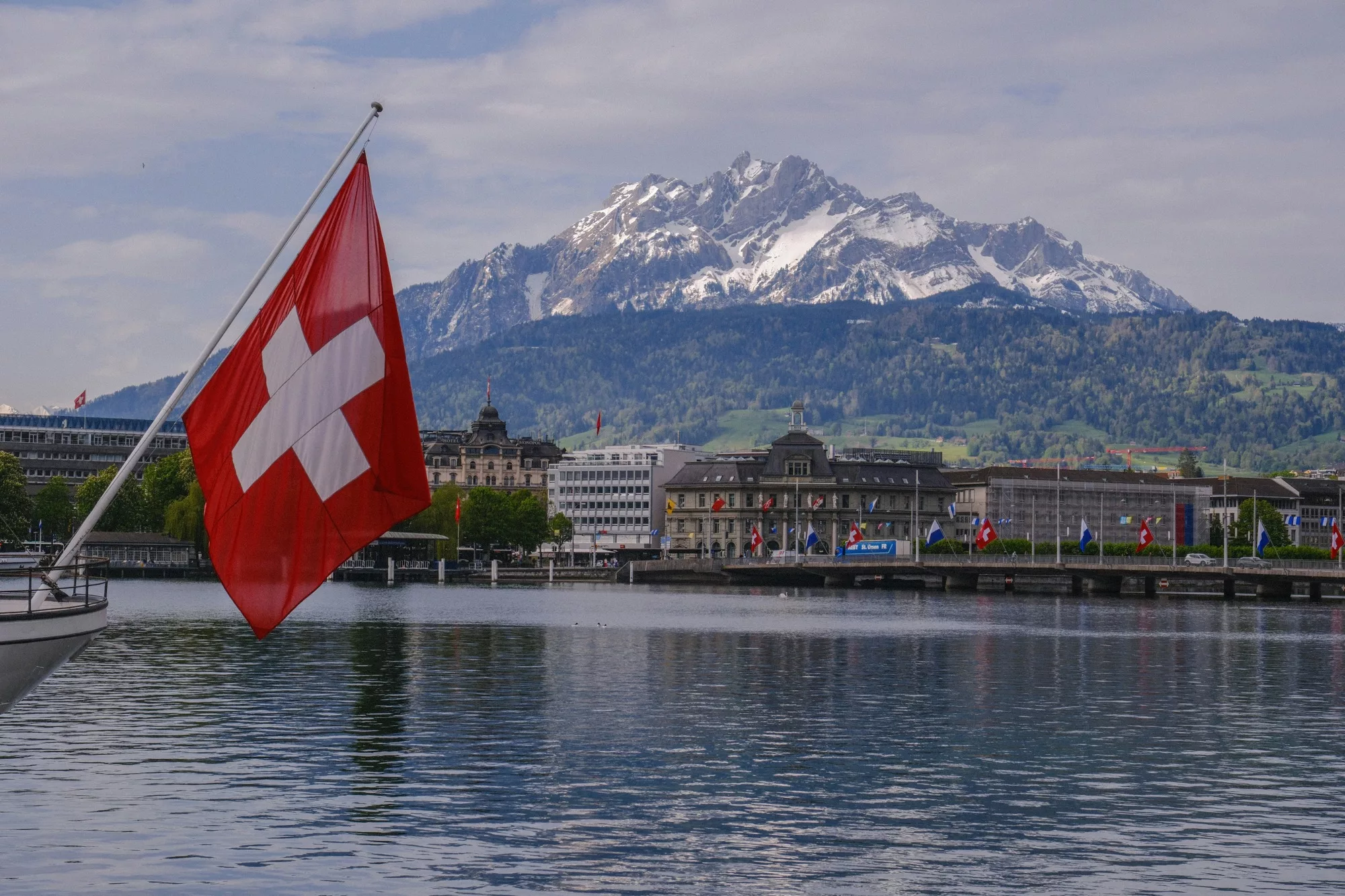When you think of Switzerland, what comes to mind? Maybe it’s alpine mountains, luxury watches, mouthwatering chocolate—or maybe, it’s their timeless neutrality. The phrase “neutral like Switzerland” has become almost cliché, but few people really understand the depth, complexity, and historical resilience behind this seemingly passive stance. Switzerland’s neutrality isn’t just a quirky tradition or marketing slogan. It’s a carefully cultivated national identity—strategic, political, and deeply cultural—that has been tested through centuries of European conflict, shifting alliances, and global upheaval.
So, why is Switzerland always neutral? The answer is multi-layered and lies at the intersection of history, geography, diplomacy, economics, and military strategy. Let’s dive into the evolution and endurance of one of the world’s most iconic foreign policies.
The Origins of Swiss Neutrality: A History Forged in Blood
The Battle of Marignano (1515): The Turning Point
The roots of Swiss neutrality go back over 500 years. During the late Middle Ages and early Renaissance, Swiss mercenary forces were among the most feared in Europe. They fought for kings and popes, gaining a fierce reputation—but it came at a cost.
The Battle of Marignano in 1515 was a defining moment. The Swiss suffered a brutal defeat at the hands of the French, signaling the end of their expansionist military campaigns. This battle wasn’t just a military loss—it marked the beginning of a national pivot. The Swiss Confederacy, made up of semi-autonomous cantons, began to question the wisdom of foreign entanglements and increasingly turned inward. In a sense, neutrality began as a practical choice to avoid further devastation.
The Reformation and Internal Divisions
The 16th century saw Europe engulfed in religious wars, and Switzerland wasn’t spared. With some cantons adopting Protestantism and others staying Catholic, the country risked tearing itself apart. Remaining neutral in external affairs became a way to maintain fragile internal unity. The last thing the Confederacy needed was to be drawn into the wars of neighboring empires, particularly those driven by sectarian divides.
By distancing itself from broader religious and dynastic wars, Switzerland found a political strategy that served both its survival and its economic interests.
The Congress of Vienna (1815): Neutrality Becomes Official
Switzerland’s neutrality was unofficial but respected for centuries. That changed dramatically after the Napoleonic Wars, a period of tremendous upheaval across Europe.
In 1815, the Congress of Vienna—a major diplomatic summit to restore order to post-Napoleonic Europe—formally recognized Switzerland’s perpetual neutrality. This wasn’t just a gesture of goodwill. The great powers of Europe had strategic reasons for keeping Switzerland out of future conflicts. The Swiss Alps made the country an ideal natural barrier between France, Austria, and the German states.
More importantly, the Swiss Confederacy agreed to never participate in future wars between European powers and to never allow foreign armies to pass through its territory. In exchange, its territorial integrity was guaranteed. Switzerland became a kind of buffer state—a neutral zone that no empire could claim without threatening the balance of power.
This agreement cemented what would become a cornerstone of Swiss identity: neutrality not just as a political policy, but as a permanent legal status.
Armed Neutrality: The Paradox at the Heart of Swiss Defense
One of the most misunderstood aspects of Swiss neutrality is that it’s not pacifism. The Swiss are famously committed to a concept called armed neutrality. In simple terms, they will not attack—but if you invade, they’ll be ready.
Switzerland maintains a strong, modern military. In fact, military service is mandatory for most Swiss men, and many keep their rifles at home even after service. The entire country is designed with defense in mind—from underground bunkers to secret tunnels, to mountain passes rigged for demolition.
This isn’t paranoia. It’s pragmatism. Switzerland knows that neutrality is only respected if it can be enforced. That’s why the nation invests in deterrence. The world respects Switzerland’s neutrality not just because it’s enshrined in treaties, but because violating it would be a costly mistake.
Neutrality During the World Wars: Walking the Razor’s Edge
World War I: Tension Without Invasion
During World War I, Switzerland managed to remain officially neutral, despite being surrounded by countries at war. It served as a refuge for wounded soldiers and a hub for humanitarian efforts. But neutrality wasn’t easy. The nation had to carefully balance its trade relationships and diplomatic messages. Different linguistic regions—German, French, Italian—had differing sympathies, which caused internal political friction. Still, the country avoided war, proving that neutrality was more than just policy—it was a guiding principle.
World War II: Moral Dilemmas and Realpolitik
Switzerland’s neutrality during World War II is far more controversial. The country was encircled by Axis powers and fascist regimes. Nazi Germany could have invaded at any time. To survive, Switzerland mobilized hundreds of thousands of troops and fortified its mountainous terrain, prepared to make an occupation extremely painful for any aggressor.
But neutrality came with compromise. The Swiss traded with Nazi Germany, and in many cases, turned away Jewish refugees fleeing the Holocaust. The Swiss National Bank also handled Nazi gold, some of it looted from occupied countries. These actions have been the subject of public reckoning and international criticism.
Yet, in purely strategic terms, Switzerland’s neutrality worked—it avoided occupation, preserved its independence, and maintained its humanitarian institutions, including the International Committee of the Red Cross.
Neutrality in the Cold War and Beyond
A Western Nation Without NATO
During the Cold War, Switzerland’s neutrality became even more distinct. The country refused to join NATO, even though it shares Western democratic values and borders NATO member states. It also stayed out of the Warsaw Pact, maintaining a diplomatic balancing act that kept both sides at bay.
While Western-aligned in culture and economy, Switzerland’s official position was clear: we don’t take sides in military alliances. That said, it did engage in intelligence gathering, acted as a diplomatic intermediary, and supported humanitarian efforts worldwide.
Modern Neutrality: Adaptive, Not Passive
In the modern era, neutrality has evolved. Switzerland has joined the United Nations, participates in peacekeeping missions, and engages in global diplomacy. Its neutrality doesn’t mean silence. It frequently calls out human rights abuses, pushes for nuclear disarmament, and champions international law.
But it still won’t join military coalitions, host foreign bases, or allow its troops to be deployed for offensive missions. Neutrality, in the Swiss context, is about sovereign independence—staying out of the power plays of superpowers and refusing to become a pawn on someone else’s chessboard.
Economic and Cultural Benefits of Staying Neutral
A Financial Safe Haven
Switzerland’s neutrality has made it an attractive location for banks, investors, and multinational institutions. In times of global uncertainty, capital tends to flow toward stability—and Switzerland offers just that. Its banks, currency (the Swiss franc), and economy are often seen as havens during geopolitical turbulence.
This neutrality isn’t just a defense policy; it’s a core part of Switzerland’s economic model.
Diplomacy as a National Brand
The Swiss have made neutrality part of their international brand. Geneva, for instance, is home to dozens of major global organizations including the World Health Organization, World Trade Organization, and UN agencies. The Swiss host peace talks, offer good offices in international disputes, and serve as a backchannel between enemies.
This soft power gives Switzerland outsized influence for a country of just 9 million people.
Criticism and Limitations of Swiss Neutrality
While widely admired, Swiss neutrality isn’t without its critics. Some argue that it enables moral ambiguity, particularly when neutrality is used to avoid taking a stand on major global issues like genocide or authoritarian aggression.
Others say that in a world facing transnational threats—like climate change, cyber warfare, and terrorism—strict neutrality may not be viable forever. Still, the Swiss public overwhelmingly supports this policy. It’s part of their identity, their culture, and their constitution.
Conclusion: The Power of Choosing Not to Choose
Switzerland’s neutrality isn’t just a historical accident or a product of geography. It’s a deliberate choice, made and remade over centuries. It has survived wars, revolutions, and global ideological shifts—not because it avoids the world, but because it engages with it on its own terms.
In a world that often feels divided into opposing camps, Switzerland offers a compelling case for the power of non-alignment. Neutrality, in the Swiss context, is not weakness. It’s wisdom, resilience, and a quiet kind of strength.
That’s why, even today, Switzerland remains neutral—not because it has to, but because it chooses to.




